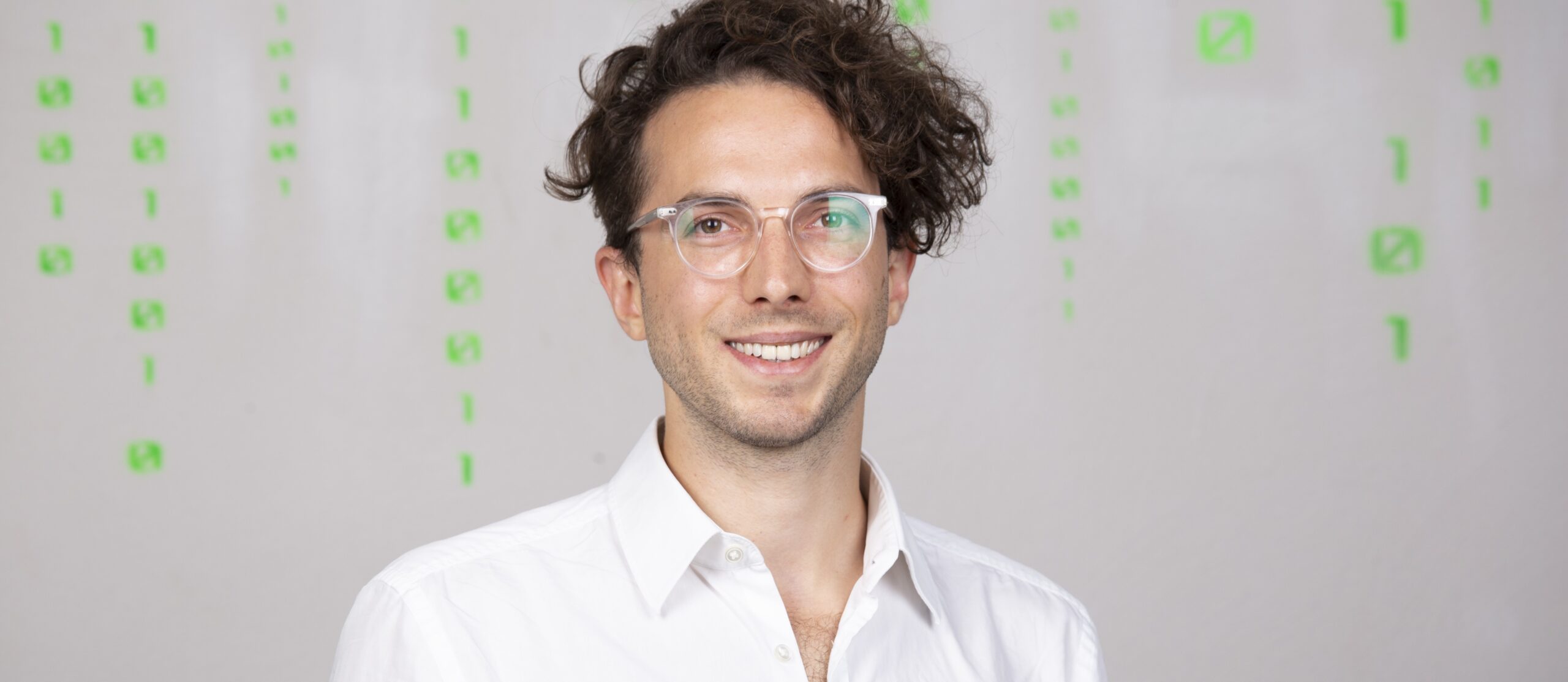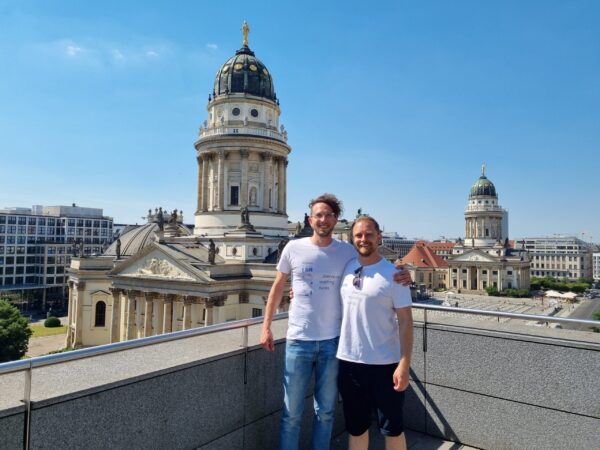What do byways do
Q: Can you give a little background about your company?
A: I’m Alex, from Slovakia, with a decade of experience scaling logistics startups to valuations of over €10 billion. My leadership has extended across technology, sales, and operations teams, focusing on the development and rollout of digital tools for non-tech-savvy industries. Several years ago, I joined David Nothacker and his team as a Head of Product at the onset of crafting a highly promising venture—a digital freight forwarder, now a leader in its vertical in Europe. After that, I co-founded byways together with Dr. Simon Jordan, aiming to further innovate the logistics and supply chain sector.
byways is a software company from Berlin focusing on truck scheduling and logistics yard optimization. This multi-billion industry is daily losing up to 30% of its resources due to market fragmentation. Hundreds of thousands of warehouses, carriers, and their subcontractors operate in silos, often not knowing each other – a problem intensified by outdated manual processes for shipment planning and dispatching. byways is solving this problem by providing access to a collaboration platform for hundreds of thousands of trucks and warehouses on the market.
Why Alex Chose Entrepreneurs First
Q: How did you come up with an idea?
A: The idea for byways was rooted in my personal experience, where I saw the pain and financial drain of manually aligning millions of operations daily within the logistics industry. My co-founder and I recognized the need for a solution, given our skill set and passion for the challenge. The company’s viability and potential made sense on paper, considering the financial model and strategy.
What Motivated Alex to Take the Entrepreneurs First Leap
Q: What motivated you to join Entrepreneurs First?
A: My drive to join Entrepreneurs First originated from two compelling sources. First up, I was captivated by the program’s success stories. Conversations with friends who had already navigated the Entrepreneurs First journey fortified my belief that this was the right move for me (my coworkers and friends Dmitri Amariei and Luke Sequeira were the ones who told me about EF first). Their endorsements were the social proof I needed. Secondly, what truly sealed the deal was the program’s reputation for curating a community of passionate and skilled individuals, all gunning to tackle some of the world’s most pressing challenges. Now, I’m no prodigy, but the allure of joining a hive of expertise with a shared mission was too compelling to ignore.
In a nutshell, my push to join came from a blend of trusted recommendations and compelling online narratives. If we’re diving into the specifics of what I was seeking, it boiled down to forging connections with kindred spirits and possibly finding that elusive co-founder.
To me, the crowning glory of Entrepreneurs First—or any similar outfit—is its knack for assembling a crack team of remarkable people. It’s like the startup world’s version of the Ivy League. Think of it as Entrepreneurs First’s unique selling proposition: they put in the legwork to scout out the cream of the crop. So, while I wouldn’t go so far as to equate them with Harvard, their ethos of meticulously picking individuals for their cohorts is very much the same game. I’d even go as far as to label them as “talent matchmakers,” and I’ve got a hunch they’d wear that tag proudly.
So, my core incentive for throwing my hat into the Entrepreneurs Firsts ring was the prospect of networking with extraordinary people, the kind of associations that can be a game-changer in the volatile landscape of startups.
The Application Process for Entrepreneurs First
Q: Can you describe the application process?
A: The application process, if I recall correctly, involved the typical components of submitting a CV and a cover letter. Entrepreneurs First receives thousands of applications during this phase, and they sift through them to identify candidates for the program.
Following this initial stage, selected applicants go through either in-person or remote interviews with key figures from Entrepreneurs First’s management team. These interviews aim to assess whether the program is a suitable fit for the candidates.
The objective here is to assemble diverse teams. For instance, if the plan is to form a two-person startup, which is a highly preferred option globally, it’s advantageous to have individuals with different skill sets and backgrounds. The goal is to avoid having an entire team composed of salespeople or all product managers, for example. Entrepreneurs First actively seeks to bring together a range of people with various expertise to foster innovation and creativity. This diversity is a distinguishing factor in their selection process.
What Comes Next After Getting In
Q: Can you describe a typical day in the accelerator program and the level of mentorship provided?
A: A typical day in the accelerator program is intense. The journey begins with initial administrative tasks and confirming your commitment after the admission call. You’ll be in a room with around 50 others, all facing a similar situation. The next few weeks will be full of emotions, with highs and lows, and it’s a challenging process. Entrepreneurs First actively guides the formation of the right teams and dissolves those that may not align well. Every day involves hard work to identify the best partner based on skills, aspirations, and project focus.
As for mentorship, we are provided with a few mentors, but the chemistry needs to be right for it to work. These mentors might even become investors eventually. They assist in evaluating ideas and approaches and help us address questions and challenges with their expertise. They provide hands-on guidance, but it’s usually a short interaction, limited to a few minutes every week or two. During these brief sessions, it’s crucial to update the mentor on your progress, discuss your ongoing challenges, and ask specific questions. The mentorship is not coaching; it’s about tapping into their expertise to work through the problems you’re facing.
Q: Did you receive any funding from the accelerator?
A: The specific amount of funding I received from Entrepreneurs First is subject to a non-disclosure agreement (NDA). However, I can share that within the program, companies receive a certain amount of funding in exchange for equity or other financial instruments. This initial funding is intended to help startups develop a proof of concept, particularly in the software or hardware space.
The program’s focus is more on software and hardware. Beyond this initial funding, Entrepreneurs First assists startups in transitioning from 0 to 1 and then from 1 to 100. They facilitate connections with a network of venture capitalists they know well, and they may also consider making additional investments in startups at a later stage. The program’s extensive network is instrumental in introducing startups to potential investors to fuel their growth.
The Outcomes and Impact of Completing the Accelerator Program
Q: Can you discuss the major milestones your startup achieved during the program?
A: During the program, it’s a bit challenging to point to significant milestones. However, we managed to make substantial progress. This included finding a co-founder, identifying a problem to work on, validating that the problem had real-world relevance, and even garnering testimonials from potential customers who expressed interest in using our solution. One of the most significant milestones, I would say, was successfully navigating the investment committee with a positive result. Achieving all of this in a relatively short timeframe was quite remarkable. The program’s pace allowed us to accomplish a great deal during its duration.
Scaling Beyond the Accelerator
Q: What’s the current status of your company post-accelerator?
A: Post-accelerator, our company has experienced impressive growth and impact. We now serve over 1,000 companies worldwide, and we’ve formed strong partnerships with numerous multi-billion euro enterprises that boast thousands of warehouses on a global scale. Some noteworthy industry leaders we collaborate with include ASOS, a prominent fashion e-commerce player, Cemex, one of the world’s top three building material manufacturers, and Prysmian Group, a leader in cable manufacturing, among others.
Our achievements are substantial. We’ve successfully introduced our solution to these companies, extending its use to their partners, suppliers, and logistics firms. Our platform brings together a diverse range of stakeholders, simplifying logistics by facilitating efficient time slot coordination, on-time arrivals, and streamlined truck loading and unloading processes. Notably, our solution has resulted in significant cost savings, on average ranging from 10% to 30% in the entire logistics coordination process, making a considerable impact on the bottom line for these companies and more.
Essential Insights for Founders
Q: What final advice would you give to other startups considering applying to EF or similar accelerator programs?
A: Before diving in, ask yourself why you want to start a company in the first place. Do you really want to be an entrepreneur? This is a big choice. At Entrepreneurs First, you don’t apply with a startup; you apply as a person who wants to build one. So my top tip? Stay focused and be ready to change course if you need to.
Now, think about whether you have what it takes to run a business. Are you good at working with others, especially in a close partnership like a co-founder relationship? This is key. You and your co-founder should bring different strengths to the table so you’re stronger together than apart. It’s something you can’t ignore.


